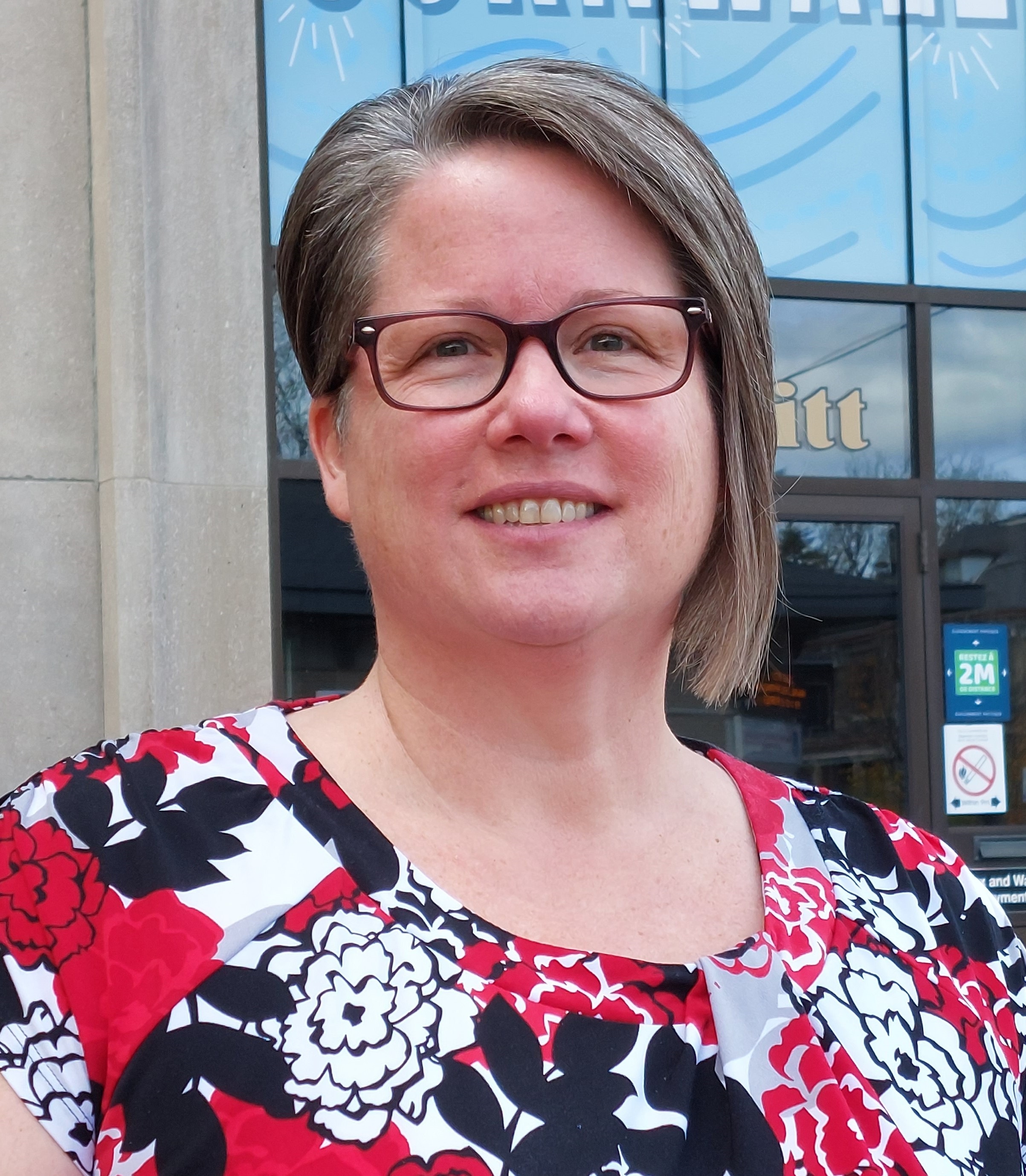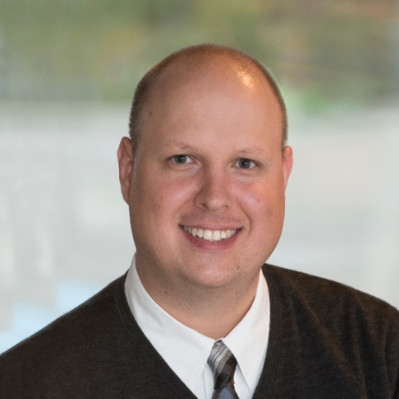An Interview with Mellissa Morgan
An Interview with Mellissa Morgan
By Rob Kirsic
December 2022

She is also the recipient of the 2022 OMSSA Patti Moore Human Services Integration Award. OMSSA sat down with Mellissa for an interview to discuss her work and experiences over her career within the City of Cornwall and various human services topics.
This interview has been edited and condensed.
OMSSA: Human services integration can be a challenge but also offer opportunities for better service delivery and collaboration. In your experience, what should up-and-coming human services leaders across Ontario know and think about when it comes to human service integration and delivery?
Mellissa Morgan (MM): The question itself is a challenging one because I’m not sure one person can clearly articulate it. The services we deliver are not a one size fits all model. What works for us, in Cornwall, is not going to necessarily work in another area. Everyone has to do what is best for them and their staff, and residents, in their communities.
Generally, people need to dare to be bold and different. Take risks, think outside of your comfort zone, and challenge yourself to explore beyond the norm. It is ok to be vulnerable and different, and not be successful and learn from it.
You do not need to be the one that carries the responsibility all by yourself. It is not something one person can do alone, so I think building a team that has the same philosophies and values, and shared the same goals is half the battle in being able to provide the right client service.
OMSSA: As a leader, and based on your experience, what can human service leaders and front-line staff do to embrace innovation and out-of-the-box thinking for their teams and clients?
MM: I don’t think anything is out of the realm of possibilities for your staff, teams, or clients. I think far too often we are afraid of trying because we are afraid of failing. And, I think, from the pitfalls and lessons learned in failure comes some of the biggest successes.
As I mentioned earlier, this role is not something you can do alone so don’t be afraid to ask. As your front-line staff as they are the ones that are delivering the day-to-day services to clients. Don’t be afraid to ask others around you too. Ask other Service Managers what they are doing. I think it is also important to learn from your own corporate structure. We need to pay attention to our environment and listen to what people are telling us and don’t discount it.
 I think for us too, one of the key things in our area is we really needed to stop working in silos and keep the client at the centre of everything we do. As an example, before I undertook our long-term care facility within my portfolio, our department developed a holistic approach to the client experience and we’re moving more towards the Ministry of Children, Community and Social Services (MCCSS) philosophy of Life Stabilization. That philosophy has enabled us to approach the delivery of services from the very formative years of a child’s life, providing quality childcare for children to start their development and supporting parents with childcare; to now with the long-term care facility, we are bringing that philosophy there as well so it carries through to their last days and how can we help everybody stabilize their lives at any point.
I think for us too, one of the key things in our area is we really needed to stop working in silos and keep the client at the centre of everything we do. As an example, before I undertook our long-term care facility within my portfolio, our department developed a holistic approach to the client experience and we’re moving more towards the Ministry of Children, Community and Social Services (MCCSS) philosophy of Life Stabilization. That philosophy has enabled us to approach the delivery of services from the very formative years of a child’s life, providing quality childcare for children to start their development and supporting parents with childcare; to now with the long-term care facility, we are bringing that philosophy there as well so it carries through to their last days and how can we help everybody stabilize their lives at any point.
OMSSA: Taking on long-term care (LTC) within your portfolio is new opportunity for you in your role. Some OMSSA members have LTC within their portfolios but it’s not consistent across all CMSMs and DSSABs. As you undertake this role, what have you learned about providing long-term care in Cornwall? And what do you hope to achieve through this work in your community?
 MM: Long-term care is relatively new to my portfolio and is a bit of a learning curve for me, but, in general, it is a very good fit within the services we already deliver. It is a great model that encompasses everyone from birth to, unfortunately, end of life, and, again, emphasizes how can we look at a delivery model that basically ensures everybody has life stabilization and quality of life throughout their entire lives.
MM: Long-term care is relatively new to my portfolio and is a bit of a learning curve for me, but, in general, it is a very good fit within the services we already deliver. It is a great model that encompasses everyone from birth to, unfortunately, end of life, and, again, emphasizes how can we look at a delivery model that basically ensures everybody has life stabilization and quality of life throughout their entire lives.
OMSSA: As General Manager of Human Services and Long-Term Care for the City of Cornwall, is there something you are noticing in your community that OMSSA Members should know about and might help them in their roles and responsibilities?
MM: For us, like many, COVID-19 brought an entirely new set of challenges. Here in eastern Ontario, the housing crisis and affordability issue was prevalent but not as prevalent as it was elsewhere. What happened with COVID-19 is those trends his us at an exponential rate, far faster than elsewhere.
Right now, it is really all about what does the new normal, post-pandemic period look like? We are still in a housing and affordability crisis; we at a critical point here. Our caseloads are rising. We are at pre-COVID caseloads and, I think, along with this comes some significant recruitment issues which is a new reality for everybody.
 We are in a brave new world and we have to adapt to this reality and think outside the box on how we are going to approach these challenges. In thinking of these challenges in a broader, more innovative approach, we can include our communities as part of the solution from the client perspective and their experiences. Because we are a smaller Service Manager area, we have many resources that are all trying to accomplish the same thing with limited staff and funding, so I think partnerships are critical.
We are in a brave new world and we have to adapt to this reality and think outside the box on how we are going to approach these challenges. In thinking of these challenges in a broader, more innovative approach, we can include our communities as part of the solution from the client perspective and their experiences. Because we are a smaller Service Manager area, we have many resources that are all trying to accomplish the same thing with limited staff and funding, so I think partnerships are critical.
Mental health continues to be a significant barrier, and again, I think that was escalated exponentially by COVID-19 which is a major concern for us. Recently, we have hired two housing stability coordinators to bridge the short-term gap between clients coming to our service and waiting for external services. They can provide some interim mental health support to clients to stabilize them at the most critical point in their lives until they can receive more stabilized services. There are times when getting people housing is not the biggest barrier, but rather it is keeping them housed so we’re hoping our coordinators will help stabilize clients in a longer-term situation so that they are able to consider addressing other areas in their life that they need to look at now that they’ve got that foundation of stabilized housing and it’s not on their minds.
OMSSA: Looking back on your career to date, are there one or two achievements that stand out to you? What are they and what makes them stand out to you?
MM: I’ve had a pretty vast career. I have worked in this industry since graduating from university. More than 28 years now, and there have been many things that have changes along the way. I have seen the transition from General Welfare Assistance (GWA) to Ontario Works (OW), mothers allowance coming back from the Family Benefits Act (FBA), the new ODSP and SAMS and a multitude of other things, but I think there are some recent achievements that stand out to me.
The first one, and most recent one, is the consolidation of our local housing corporation into the City as a city department. We were one of the few Service Managers in the province who still had a standalone local housing corporation, and while we worked quite closely with them in the past, there was still a bit of a disconnect in providing services to clients. This initiative took us about 12 months to fully complete it, and in January 2022 we officially dissolved the old housing corporation and brought their staff in-house. At the same time, we took the opportunity to rebrand our department, hence we became the Cornwall SDG Human Services Department. We are already seeing benefits of that initiative in terms of the delivery to clients and strengthening the client experience.
As a leader you continually need to assess the demand for services and how you can deliver those services more effectively. In another instance, one of the decisions that we had to make, and it was an unfortunate and difficult decision (which created a positive outcome), was to close our directly operated daycare. What this did was allow us to redirect our efforts and resources to an area that was in high demand, which was special needs resourcing. Staff provide additional supports and resources to children, parents, and most specifically staff in Child Care Centres, to assist with special needs.
We have been able to shift our focus and I think the children and families in our area are better off because of that decision and additional support.
OMSSA: Is there anything else you would like to say that I have not asked about?
MM: If I could just leave everyone with one final thought, it is dare to dream. This work is not a one size fits all model, so do what you need to do to make it fit in your area but dare to dream.
OMSSA: Thank you, Mellissa.
About the Author

Rob Kirsic is the Communications and Member Engagement Manager with OMSSA. Rob started with OMSSA in 2021 and has over 14 years of communications and public relations experience in the private, public, and not-for-profit sectors.